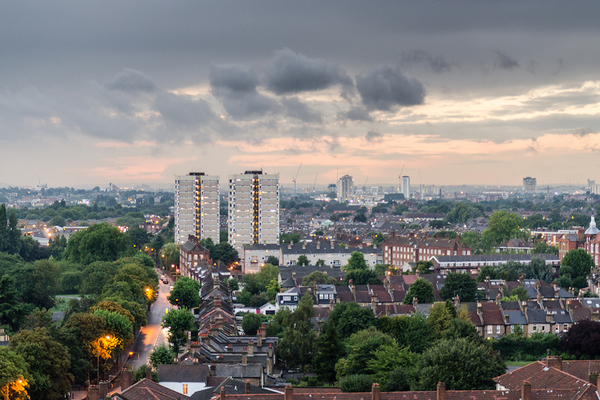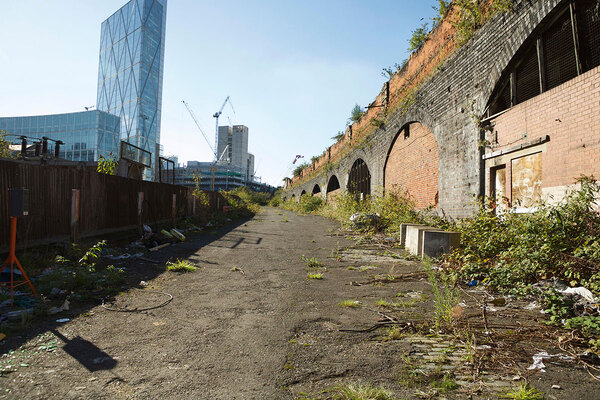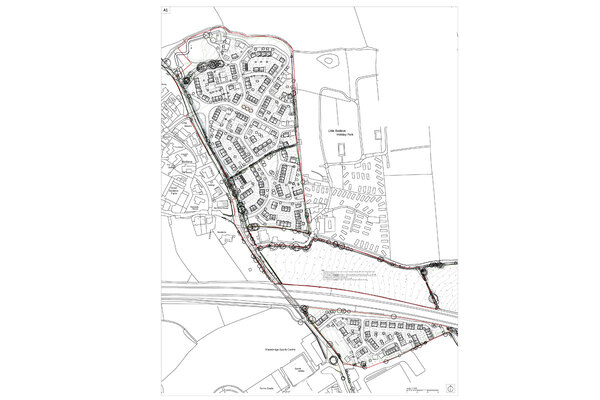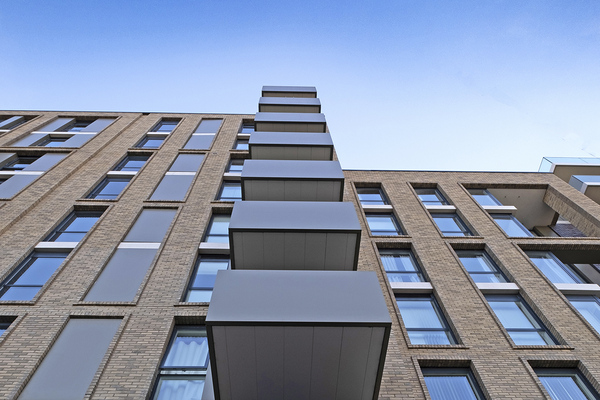You are viewing 1 of your 1 free articles
Housing associations urge Hammond to relax planning laws for taller buildings
Britain’s largest housing associations have called on Philip Hammond, in next week’s Budget, to back a Conservative MP’s campaign to relax planning laws to allow for taller development.
Bosses of the G15 group of landlords, as well as Placeshapers, Midland Heart, Orbit and Places for People – which together delivered 97% of all housing association new builds in 2016/17 – wrote to the chancellor today to make the request.
They want Mr Hammond to announce measures in line with Weston-super-Mare MP John Penrose’s ‘Build Up Not Out’ campaign.
The campaign calls for permitted development rights to be extended to allow urban property owners to build up to the height of the tallest buildings in the same block or the height of mature local trees without needing planning permission.
The move would be “an immediate and effective step towards solving the housing crisis” which could “substantially increase the supply of sites for development”, the housing associations’ letter said.
The letter claimed that a relaxation of the planning laws would make it easier to build upwards in urban centres and attract investment towns and cities, encourage smaller builders to develop and reduce urban sprawl.
Mr Penrose, who was formerly architecture and heritage minister, said: “I’m delighted that the industry is reacting so positively to this plan. We’ve simply got to build more homes, whether they’re to rent or to buy, so they’re cheap enough for everyone to afford.
“This will unlock huge numbers of new urban housebuilding sites, and the housing associations have the financial muscle, the skills and the networks of local building suppliers to break the stranglehold of large housebuilding firms, so we turn those new sites into homes much faster than before.”
February’s Housing White Paper said the government “intends to amend national planning guidance to highlight planning approaches that can be used to help support higher densities”.
Full letter text below
Dear Chancellor,
We are writing as the leaders of the largest housing providers in the country, responsible for nine out of 10 social housebuilding completions. We would like to encourage you to commit the government to John Penrose MP’s proposal to ‘Build Up Not Out’ in your upcoming Budget, as an immediate and effective step towards solving the housing crisis.
As the recent Housing White Paper rightly points out, we haven’t built enough homes for decades and lack of supply has caused soaring prices and created one of the biggest barriers to social progress in our country today. An average home now costs around eight times the average salary. In the 1950s and 60s, we were building more than 300,000 new homes a year and today we’re managing just half this: we simply must do better.
The Housing White Paper also points out that the only way to make homes more affordable for everybody is to build a lot more of them, whether it’s to rent or to buy. Cheaper homes are one of the simplest, most effective ways of raising living standards for everyone. And, by making our available cash go further, of improving the country’s economic productivity too.
Recent policy announcements such as the return to a CPI + 1% rent settlement for social housing providers and the decision not to apply the LHA caps to supported and social housing have been enormously welcome, and provide housing associations with the real certainty they need to be able to deliver those desperately needed new homes. We now need to look at all possible options to drive up site availability.
The current planning system is a slow, expensive, uncertain and conflict-ridden process for adding 1%-2% new housing sites to the existing stock each year. ‘Build Up Not Out’ would help increase housing supply.
The Idea
‘Build Up Not Out’ would extend permitted development so that planning permission is no longer required for urban property owners to build up to the height of the tallest building in the same block, or to the height of mature local trees (whichever is greater). So the result would be mansion blocks, terraces or mews housing, not sky-high tower blocks. And local authorities could issue local building codes to ensure that designs complied with particular local architectural styles, or they could insist that they only added new dwellings rather than extending existing ones. Housing Inspectors would have to take account of the newly-created sites in their assessment of five year housing supply.
The Benefits
- ‘Build Up Not Out’ will attract much-needed new investment to regenerate and save tired or run-down town and city centres, bringing fresh life, a broader mix of businesses and longer trading hours to High Streets that are suffering under the twin attack of out-of-town shopping centres and online retailers.
- ‘Build Up Not Out’ would break the stranglehold of large housebuilding firms over the number of new homes that are built. They tend to focus on larger sites, whether they are greenfield or in towns, and rarely pick up smaller plots where an individual bungalow or two-story shop could be redeveloped into four or even eight smart new apartments on the same site. By releasing lots of over-looked smaller urban plots, we can create a fast-growing cadre of insurgent new developers, adding much-needed new capacity and competition to the sector and its supply chains.
- ‘Build Up Not Out’ is greener, because it reduces urban sprawl by cutting the pressure from builders to concrete over green fields and green belts at the edge of towns and villages across the country (reducing political strife too). It also cuts commuting by allowing people to live closer to work, to the shops and to other community hubs from libraries to GP surgeries, with all the associated reductions in emissions, and the effects on both our quality of life and the wider environment, which this entails.
Listed properties or conservation area sites would still need to obtain heritage consent for any changes, and building regulations on building safety etc would be unchanged. Non-urban sites, and larger urban ones (where redevelopment would have a big impact on the local environment) would still need planning permission in the normal way. Where planning permission is already required to switch shops or offices into housing it would continue, but would not be needed for extensions which added apartments in addition to an existing use.
We believe that, ‘Build Up Not Out’ has the potential to substantially increase the supply of sites for development. Housing associations now have the rent certainty to be able to deliver and are keen to support any initiative which will bring more developable sites through to market. We have the financial strength, the capability and the networks of local suppliers to be able to build greatly increased numbers of homes. Housing associations have an ambition to deliver. By combining planning reforms and taking a fresh look at HCA programmes, housing associations can increase the pace and scale of development.
We hope you will feel able to support this proposal, and we look forward to your Budget with interest.
Yours sincerely,
Paul Hackett, Chair, G15
Sinéad Butters, Chair, PlaceShapers
Ruth Cooke, Chief Executive Officer, Midland Heart
David Cowans, Group Chief Executive, Places for People Group
Mark Hoyland, Chief Executive, Orbit











